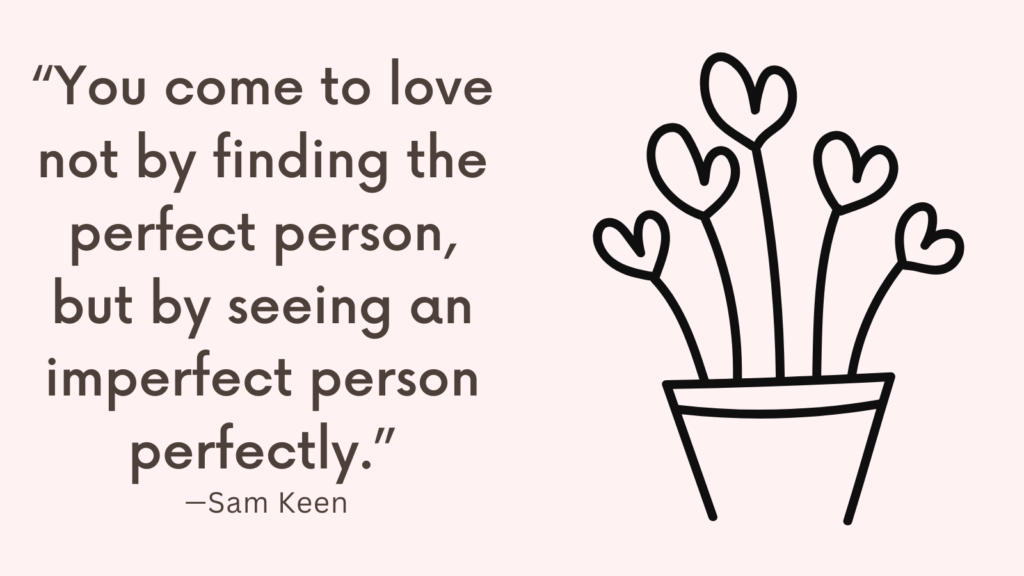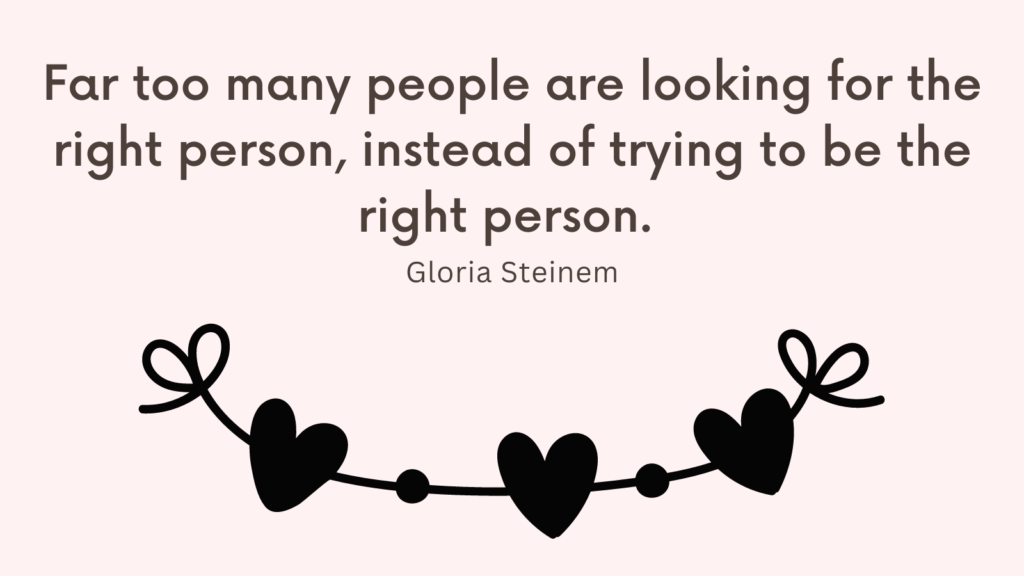In this post, you’ll learn about the main pros and cons of a relationship.
Pros And Cons Of A Relationship
Pros of a Relationship
1. Emotional Support
Having a partner who is there for you during both the ups and downs of life can make a significant difference in your overall well-being.
When you face challenges or difficult times, having someone to lean on can provide comfort and reassurance.
They can offer a listening ear, lend a shoulder to cry on, and provide valuable advice or perspective.
In times of celebration and joy, your partner can be your biggest cheerleader, sharing in your excitement and amplifying your happiness.
Knowing that you have someone who cares deeply about you and is always there to support you can bring a sense of security and contentment to your life.
This emotional support can help you maintain a healthy mindset, cope with stress, and increase your resilience.
It creates a safe space where you can express yourself freely, be vulnerable, and feel accepted.
Related: Top 7 Tips On How To Create A Conscious Relationship Using ACT
2. Shared Experiences
Whether it’s going on adventures, trying new activities, or simply spending quality time together, sharing experiences creates lasting memories and strengthens the bond between partners.
For example, going on a vacation together allows you to explore new places and creates shared memories that can be cherished for years to come.
By experiencing things together, you also have the chance to learn more about each other’s likes, dislikes, and interests, further deepening your understanding and connection.
Additionally, shared experiences often bring joy, laughter, and moments of happiness that can enhance overall relationship satisfaction.
They create a sense of togetherness and allow couples to support and encourage one another.
Related: How to Avoid A Low Value Man & Find The Right One?
3. Companionship
Having a partner who is always there for you can provide a sense of comfort, support, and understanding.
The presence of a loving and supportive companion can make life’s journey more enjoyable and meaningful.
Whether it’s through shared activities, conversations, or simply being present during both good and bad times, companionship is an invaluable aspect of a relationship.
For instance, imagine coming home after a long day at work, feeling exhausted and stressed. Having a loving partner to listen to your concerns, offer a shoulder to lean on, and provide emotional support can make a world of difference.
4. Intimacy
Intimacy is one of the key benefits of being in a relationship. It refers to a deep emotional connection and closeness between two individuals.
In a relationship, intimacy allows partners to share their thoughts, feelings, and vulnerabilities, creating a sense of trust and understanding.
This level of closeness fosters a safe environment wherein individuals can express themselves authentically, without fear of judgment or rejection.
Intimacy strengthens the bond between partners, promoting a sense of belonging and security.
It also enhances communication, as open and honest discussions become more common, leading to effective conflict resolution.
Furthermore, intimacy can extend beyond emotional connection and manifest physically, fostering a satisfying sexual relationship.
This physical connectedness nourishes affection and desire, contributing to overall relationship satisfaction.
Related: Emotional Intimacy Test (+13 Tips On How To Increase Emotional Intimacy In A Relationship?)
5. Growth And Learning
When two individuals come together, they bring with them unique perspectives, experiences, and knowledge that can enrich each other’s lives.
In a healthy relationship, partners can learn from one another, challenge each other to grow, and expand their horizons.
For example, one partner may have a knack for cooking, while the other may excel in financial planning.
Through sharing their skills, they can both enhance their abilities and develop new ones.
Additionally, being in a relationship often requires compromise, effective communication, and understanding, all of which contribute to personal growth and emotional intelligence.
In these ways, relationships provide an ideal environment for mutual growth and learning, allowing individuals to become better versions of themselves.
Related: Earned Secure Attachment: What Is It And How To Become More Securely Attached?

Cons of a Relationship
1. Conflict And Disagreements
While relationships can bring immense joy and fulfillment, they also come with their fair share of challenges.
It is natural for individuals to have different opinions, interests, and needs, which can lead to clashes and disputes.
These conflicts can arise from various sources such as differing communication styles, values, expectations, or even external factors like work stress.
For example, one partner may prioritize spending quality time together, while the other might feel that personal space and independence are equally important.
These conflicting needs can create tension and misunderstandings, potentially straining the relationship.
However, it is essential to remember that conflict is not inherently negative; it can provide an opportunity for growth, understanding, and compromise if approached constructively.
Honest communication, active listening, and empathy are crucial in navigating conflicts and preventing them from escalating into damaging or recurring patterns.
By addressing disagreements with respect, patience, and a willingness to find common ground, couples can transform conflicts into opportunities for deeper connection and shared growth.
Related: Conflict Resolution In Marriage (+Marriage Conflict Resolution Worksheets PDF)
2. Sacrifice
When two individuals come together, they often have to compromise on various aspects of their lives, including personal goals, hobbies, and even friendships.
This sacrifice can sometimes lead to feelings of resentment or frustration if one person feels like they are giving up more than the other.
For example, individuals may have to give up opportunities for career advancement or personal growth to accommodate their partner’s needs or desires.
Moreover, sacrificing personal time and freedom can also be demanding.
It is essential for couples to communicate openly about their expectations, make compromises, and find a balance that works for both individuals.
While sacrifice is an integral part of maintaining a healthy relationship, it requires effort, empathy, and understanding from both partners.
Related: Conditional Love vs. Unconditional Love (+FREE Worksheets)
3. Emotional Challenges
When two individuals with different personalities, values, and perspectives come together, clashes are bound to happen. These conflicts can lead to emotional turmoil, as partners may struggle with feelings of frustration, anger, sadness, or unmet expectations.
For instance, a couple might have differing opinions on important life decisions, such as where to live or how to raise children, which can cause significant emotional stress.
Additionally, dealing with trust issues, jealousy, or insecurities can also be emotionally draining for both partners.
Related: Top 8 Tips On How To Get Past Infidelity Triggers And Build Trust Again (+FREE Worksheets)
4. Loss of Independence
While being in a committed partnership can bring joy and fulfillment, it often requires compromise and shared decision-making, which can limit personal freedom.
For instance, individuals might have to consult their partners before making important life choices or even minor decisions.
This loss of autonomy can sometimes lead to feelings of being controlled or restricted.
5. Compatibility Issues
When partners have fundamentally different values, interests, or goals, it can lead to misunderstandings, conflicts, and emotional distance.
For example, one partner may prioritize adventure and spontaneity, while the other values routine and stability. This mismatch in desires and expectations can result in frustration and dissatisfaction.
Additionally, differing communication styles and problem-solving approaches can hinder effective conflict resolution, making it difficult to find common ground and compromise.
While differences can sometimes be complementary and enrich a relationship, when they become too significant or irreconcilable, they can strain the bond between partners.
It is essential to acknowledge these compatibility issues early on and have open and honest conversations to determine if the relationship can overcome these challenges.
Related: Am I Ready To Be In A Relationship Quiz (+Best Dating Tips For Women)
Conclusion
It is important to note that no two relationships are the same, and what may be a benefit for one person may not be for another.
Ultimately, whether a relationship is beneficial or not depends on the individuals involved and their ability to work through challenges together while maintaining mutual respect and understanding.



